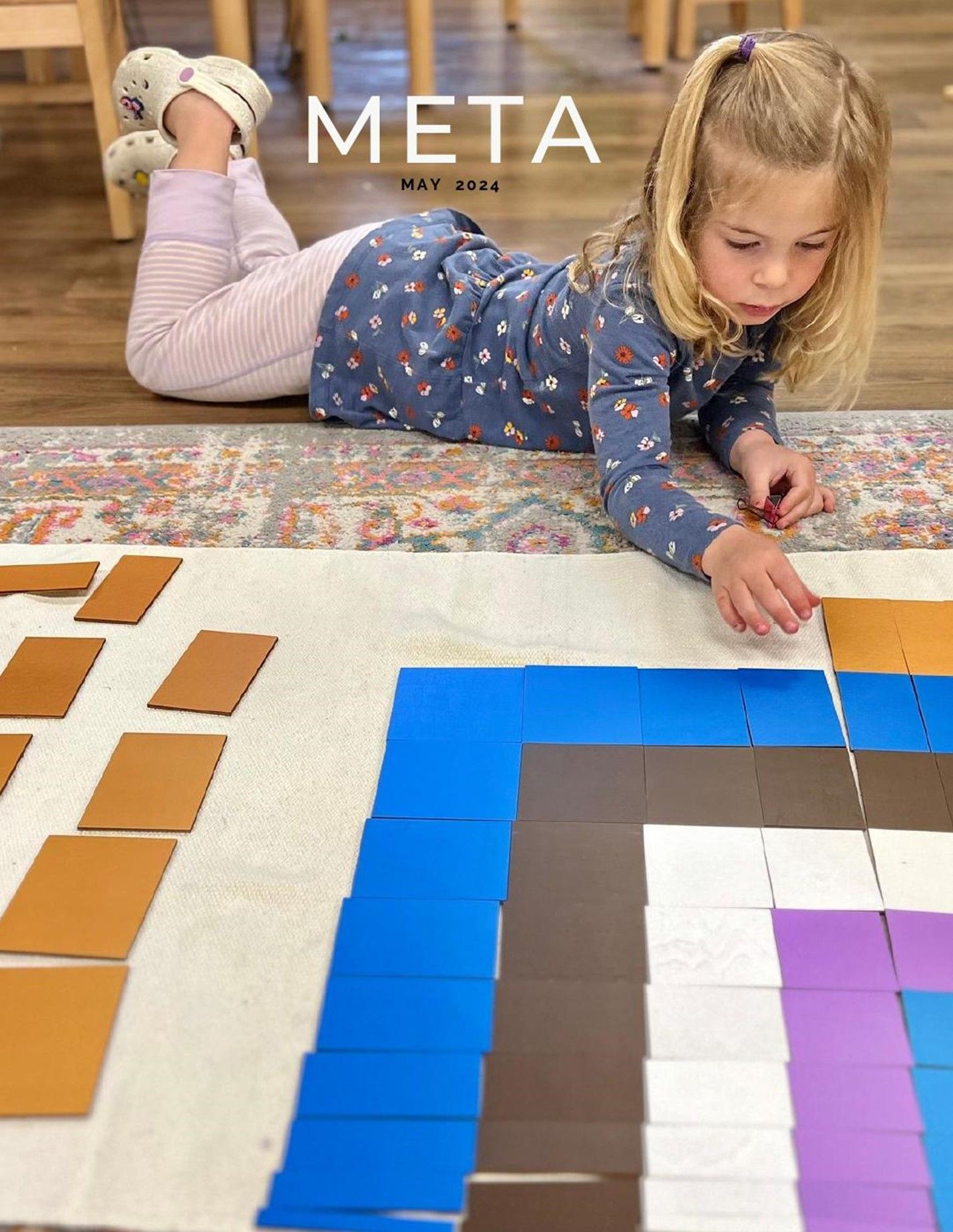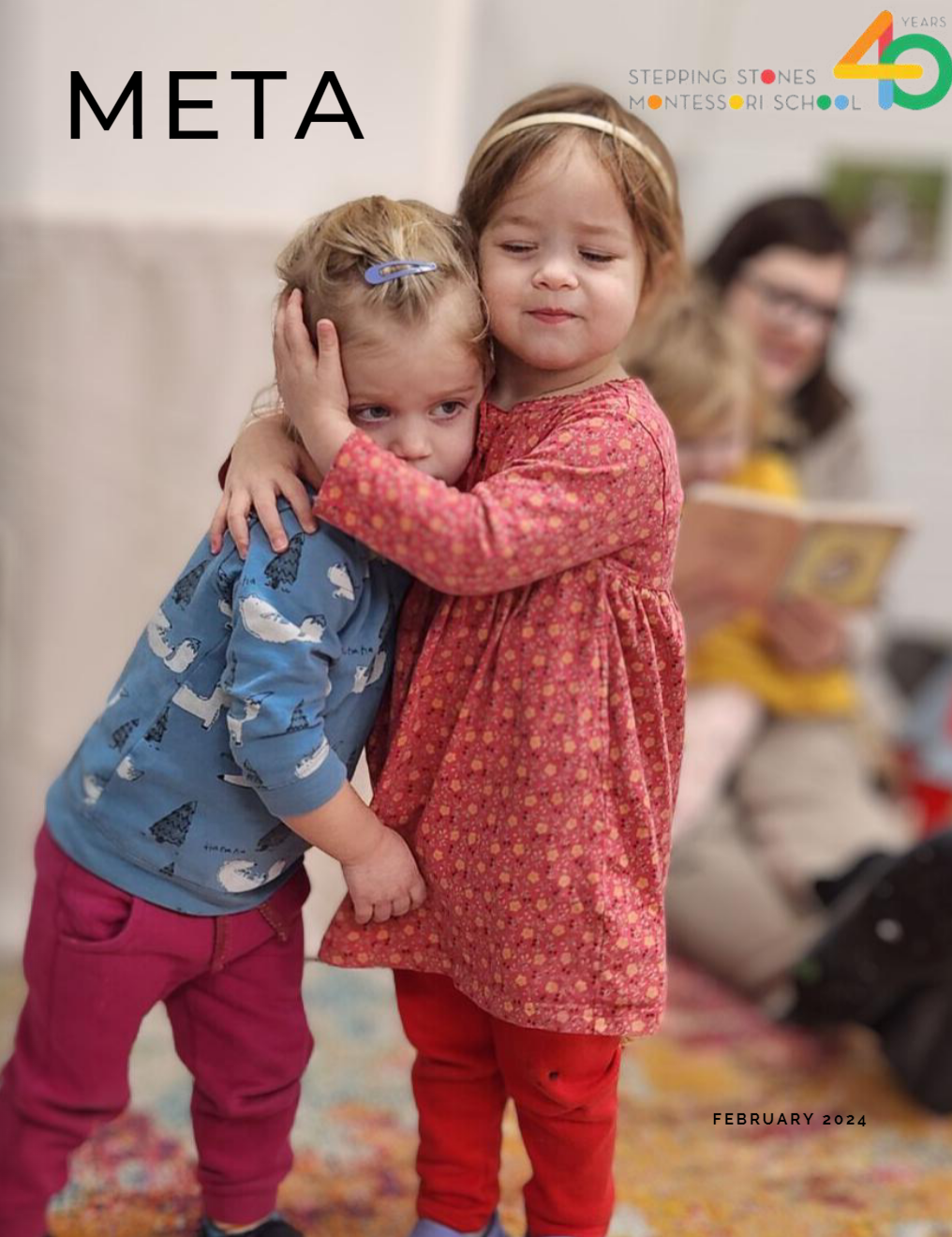I first heard about Jenifer Strauss on a cold, gray January morning after the Parent Coffee, Storytelling in Elementary: The Five Great Lessons. I was standing by the cafeteria counter chatting with Sarah D., Stepping Stones’ Admissions and Parent Coordinator.
If you’ve ever talked Montessori philosophy with Sarah, you know how this topic ignites her. She kind of leans forward and starts dramatically gesturing with her hands. True to form, as our conversation deepened, Sarah took a step closer to me. She said she was so excited that as a follow up to the Great Lessons coffee, master storyteller Jenifer Strauss would be coming to Stepping Stones in February and hosting a workshop for families, “How to Tell a Story with Your Child.”
In the background the room buzzed with parents talking. I shifted the weight of my purse on my shoulder. I told Sarah the workshop sounded amazing. And it truly did. Yet at the same time, my heart sank. I knew it would be hard logistically to get my family to the workshop. Five pm on a Thursday? Tennis lesson night. Dinner. On-time bedtime. The long drive--do we go home first and drive back or stay in the city?
That night when I got home, I started reading about Jenifer’s work. I got excited by her passion, the brain science behind storytelling and learning, and the irresistible pull a good story has over us all. I decided to call her up to interview her in advance of her visit to our school.
Our conversation was engaging and magical. Jenifer is generous, brilliant, and present. About twenty minutes into our phone conversation she asked me how old my kids are. (Twins. Second grade). She said, Twins? You must have a lot of stories to tell. And--I can’t believe this happened--I found myself going off and telling her my stories about the girls. I was supposed to be the one interviewing her.
For over a decade Jenifer Strauss worked in the public school system with at-risk kids. And then one day she started telling curriculum-related stories to her sixth graders who were struggling with writing. They loved it. She then had the students tell these stories to other students. In the end, they wrote the stories down. She was shocked how the students’ resistance to writing vanished and their writing skills skyrocketed.
Longing to use the power of storytelling to help more than one classroom at a time, she left her teaching position, and started a narrative consulting business, Story be Told.
Mandy Geerts: What makes storytelling so special that you left your teaching job to go down this path?
Jenifer Strauss: Story is our common human denominator. It’s our first language. It’s the way we explain to each other how we’ve made our way in the world.
Brain science has shown that only 50% of the stories we tell about our history are true. The other 50% is based on perception. I can look back at a traumatic event and say, “It ruined me.” Or I can look at it and say, “This is what I’ve learned. I’m moving forward.” Storytelling is the story we wish to live.
MG: So story connects us. It has the power to help us understand our past and it even has the power to transform our future.
JS: Yes. I teach people how to embrace the story they have lived with newly realized wisdom. I also give them a process to change their story so they can achieve different outcomes. As far as connection goes, we’re in a time where we’re not looking up and making eye contact. I think that story will save us from this feeling of isolation.
“What’s your story? Why are you here? What’s going on with you?” These are questions we can ask that connect us.
MG: Why use story as a learning tool?
JS: We don’t learn information in data and facts. We learn best when it’s placed in narrative form. We think, learn, and retain information in images that our human brain translates into meaning.
MG: In Montessori elementary education, stories are told about subjects I would never have thought stories could be told about. But the Great Lessons do just this--science, geography, astronomy, geology, meteorology--this content is presented via the vehicle of storytelling.
Alternatively, in traditional education, so many of these subjects are taught via the vehicle of textbooks. Do textbooks tell stories?
JS: Textbooks are a great resource for research. We need all kinds of texts to enrich our lives. But if you’re going to remember something you need to hear a story.
MG: When you visit us at Stepping Stones, what will be families’ favorite parts of your workshop?
JS: Kids will love being with their family in a shared experience together. And screenless. I don’t think families know how wonderful it is to interact with each other.
And parents will leave understanding they already have everything they need to tell stories. Some parents get nervous, they think they need something outside themselves. Families will leave the workshop feeling they can access language and literacy just by talking to each other and making sure there’s screen-free time in the day.
MG: We’re human. We hear and tell stories every day. As we go about our daily lives, does story just happen naturally or should we be more intentional in the telling of stories?
JS: Both. We should access story. We need to look up from our screens and make eye contact with others.
Because story is us. We are all storytellers. It’s our first language. It’s the greatest gift we can give to our children. By sharing our stories and taking the time to listen to our kids’ stories it helps [us all] build identity.
MG: Thank you so much. I am so excited you’re coming to our school.
****************************************************************************
Okay, parents, I hope to see you at this presentation. I’ve decided I am packing a picnic dinner for my girls and I plan to eat in the cafeteria before the workshop.
“How to Tell a Story with Your Child” Workshop
Thursday, February 13
5:00-6:30
White Cedar Room (basement of the Elementary building)





